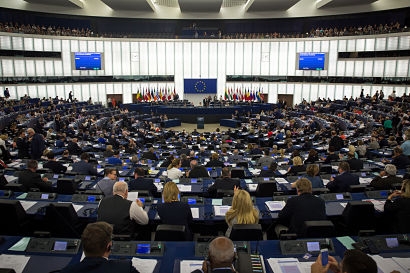
The European Parliament’s revised position on the Renewable Energy Directive, the Energy Efficiency Directive and the new Governance Regulation, which will guide the EU’s zero-carbon transition in the coming decade and beyond, needs to be more effective, according to CAN.
MEPs raised the ambition of the future clean energy laws, by voting in favour of increasing the EU’s 2030 renewable energy and energy efficiency targets to at least 35 percent and raising its long-term target to net zero greenhouse gas emissions by 2050 at the latest.
“The decision to increase the clearly inadequate EU energy targets and the long-term climate objective is a step in the right direction” said Wendel Trio, Director of CAN Europe. “With this position the European Parliament clearly challenges EU governments that have opted for far less ambitious proposals. However, these targets still fall short of what is needed to meet the long term goals of the Paris Agreement. If the EU is serious about its commitments made in Paris, the European Parliament position should be seen as the minimum effort to be done."
While calling for more ambitious targets, the Parliament also strengthened the annual energy savings obligation, which requires EU countries to save 1.5 percent of energy sold to consumers every year, by eliminating some of the loopholes allowed in the current legislation.
It did not support national binding targets for renewable energy and energy efficiency, which CAN says would help ensure that the overall EU renewable energy and energy efficiency targets are met.
See also EGEC’s positive reaction to the vote with regard to geothermal energy. WindEurope also responded positively, with CEO Giles Dickson commenting that “The Commission is starting to get it: they think going beyond 27 percent is cost-effective. Denmark and Portugal are also calling for a higher target: others in the Council now need to reconsider.”
For additional information:

